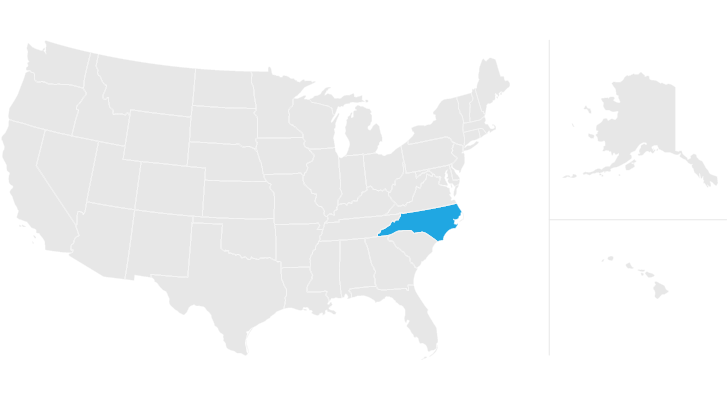Establishing a living trust in North Carolina can be a smart estate planning move for many residents looking to protect their assets and provide for loved ones. Unlike a will, a living trust allows your estate to bypass the probate process, potentially saving your beneficiaries time, money and stress during an already difficult period. This legal arrangement enables you to maintain control of your assets during your lifetime while creating a seamless transition of property after your passing. North Carolina has specific requirements for creating valid living trusts, from selecting the right type of trust to properly funding it with your assets. Here’s what you need to know.
A financial advisor can help you put a financial plan together for your estate planning needs.
Creating a Living Trust in North Carolina
Creating a living trust in North Carolina offers several advantages for estate planning. This flexible tool allows you to maintain control of your assets while alive and ensures a smoother transfer of property to your beneficiaries without going through probate. Here are six steps to make a living trust in the Tar Heel State:
- Figure out the type of trust you’ll need: Are you single? You probably want a single trust. If you’re married, you can create a single trust, but it might make more sense to get a joint trust with your spouse. You and your spouse can easily place jointly owned property, like cars and homes, in a joint trust.
- Take inventory of everything you own: You’ll need to know exactly what you own and what of it you want to place in the trust. You can place most property and accounts in living trusts, but there are exceptions. For example, you can’t place 401(k) accounts directly in your trust, though you can name the trust as a beneficiary. You should also gather any corresponding property documents you might need, like home deeds and car titles.
- Pick your trustee: You can name yourself or choose someone else to be in charge of the trust. If you name yourself, you’ll also need to pick a successor trustee to take over management of the trust when you die. Many people choose their child or another trusted relative to serve as trustee. This person will be in charge of distributing your property to your beneficiaries after you die, so go ahead and make these decisions now, too.
- Draw up the trust document: You can do this either by yourself or with a lawyer.
- Get the document notarized: Sign the trust document in front of a notary.
- Fund the trust: This means putting your property into the trust. This requires some paperwork, so while you can do it by yourself, getting a lawyer might be helpful.
What Is a Living Trust?
A living trust is a legal framework established by a document in which property and assets can be stored. Each trust has a trustee who manages the trust and distributes the trust property to beneficiaries according to the trust’s instructions. The person who creates the trust can be the trustee or can name someone else.
There are two types of living trusts. Irrevocable living trusts are more permanent. The person who creates the trust, also known as the grantor, cannot modify or remove property from an irrevocable trust without the permission of every person named by the trust. The trust wholly owns the property placed in it, and the trust pays taxes on it.
Revocable living trusts, on the other hand, offer more flexibility. The grantor can remove property from the trust and modify it at his or her discretion. The person who created the trust still owns the property inside of it and pays taxes on it as normal.
How Much Does It Cost to Create a Living Trust in North Carolina?

The cost of forming a living trust will depend on how you go about setting it up. If you use an online program to draw up the trust document yourself, you will pay a few hundred dollars or less. You can also choose to hire an attorney, which could end up costing more than $1,000. The exact amount you’ll pay for a lawyer will depend on the fees the lawyer charges.
It’s understandable why you’d want to save a few bucks and set up a living trust yourself, but there are risks to DIY estate planning. You’ll need to devote a lot of time and energy to researching the process to ensure you get all of the details exactly right. If you do hire an attorney to set up a trust, make sure you know up front what the lawyer’s fees are. Also, make sure you find an attorney who is a trust specialist, not merely an estate planner.
Why Get a Living Trust in North Carolina?
The main reason a North Carolinian would get a living trust is generally to make life easier for their family after they die. Any property stored inside the trust is not subject to probate court. Probate court is a process that estates generally go through to prove the will, and it can be time-consuming and potentially an invasion of privacy. North Carolina has not adopted the Uniform Probate Code, so this may be doubly important there. In some states, the Uniform Probate Code simplifies the probate process.
There are other reasons to get a living trust, though. For instance, a living trust may be helpful if you’re leaving assets to a minor. The trustee can oversee the child’s assets inside the trust until the child reaches legal age. If you become incapacitated, a living trust can help you avoid conservatorship, as a trustee has already been named.
Who Should Get a Living Trust in North Carolina?
People sometimes assume that living trusts are just for the wealthy, but that isn’t true. In North Carolina, the lack of the Uniform Probate Code means that even relatively small estates may benefit from a living trust. If your estate is worth less than $20,000 ($30,000 if the surviving spouse is the only heir), then North Carolina does have a simplified probate process. For these estates, a living trust likely isn’t needed.
There are downsides to living trusts. Namely, you’ll find that living trusts tend to be more complicated and costly to set up than wills. Also, living trusts allow more time for a legal challenge after you’ve died, so it could complicate things for your family.
Living Trusts vs. Wills
Even if you have a living trust, you still need a will. The will can ensure the proper distribution of any property not placed in the trust. There are also some things a living trust can’t do that a will can, like:
- Establishing guardianship for children who are minors
- Selecting managers for children’s property
- Providing instructions on how to pay taxes and debts
- Naming an executor
Here’s exactly what a will and a living trust are capable of:
Living Trusts vs. Wills
| Purpose | Living Trusts | Wills |
| Names a property beneficiary | Yes | Yes |
| Allows revisions to be made | Depends on type | Yes |
| Avoids probate court | Yes | No |
| Requires a notary | Yes | No |
| Names guardians for children | No | Yes |
| Names an executor | No | Yes |
| Requires witnesses | No | Yes |
Living Trusts and Taxes in North Carolina

Even if you set up a living trust, it won’t have much of an impact on your taxes. Still, you should know about the North Carolina estate tax and the North Carolina inheritance tax.
There is no estate tax or inheritance tax in North Carolina. The federal inheritance tax might apply if your estate is worth more than $13.99 million ($27.98 million for couples).
Bottom Line
Creating a living trust in North Carolina offers a practical way to manage your assets and provide for your loved ones while avoiding the time and expense of probate. By establishing this legal arrangement, you maintain control of your property during your lifetime while creating a seamless transition of assets after your passing. North Carolina residents should carefully consider their specific circumstances, including the size of their estate and family situation, when deciding if a living trust is right for them.
Estate Planning Tips
- No matter where you live in the country, a financial advisor can help you create a financial plan for retirement and estate planning. Finding a financial advisor doesn’t have to be hard. SmartAsset’s free tool matches you with vetted financial advisors who serve your area, and you can have a free introductory call with your advisor matches to decide which one you feel is right for you. If you’re ready to find an advisor who can help you achieve your financial goals, get started now.
- You can’t place defined contribution plans like 401(k) plans directly into a trust. However, you can name the trust as the plan’s beneficiary in case something happens to you, which means the plan would pay out into your trust.
- Another money source to take into account when you’re tallying your retirement savings is Social Security. You’ll want to know how much money you’ll be getting from the government each month when planning your retirement and your legacy.
Photo credit: ©iStock.com/Rawpixel, ©iStock.com/wellesenterprises
